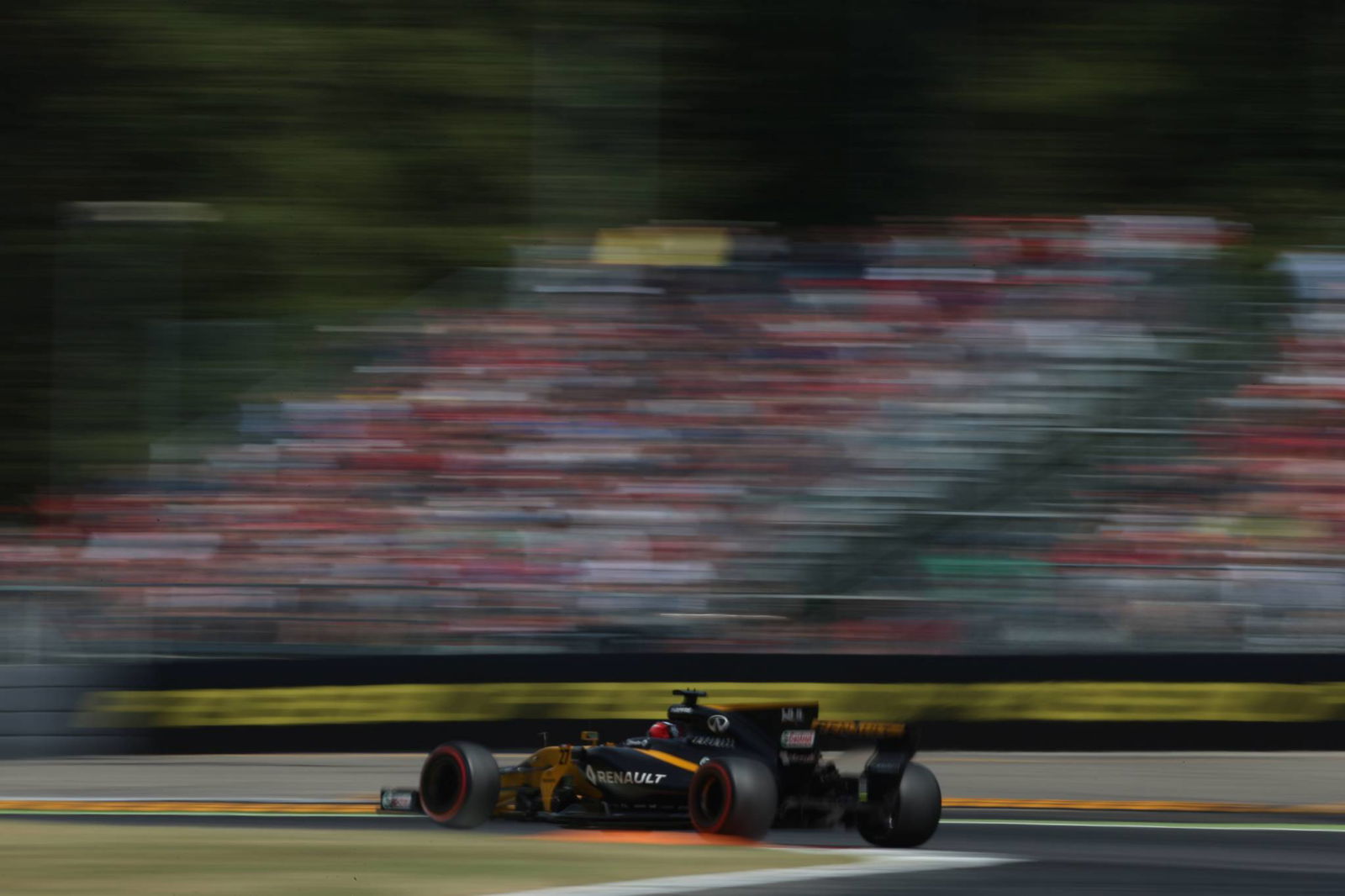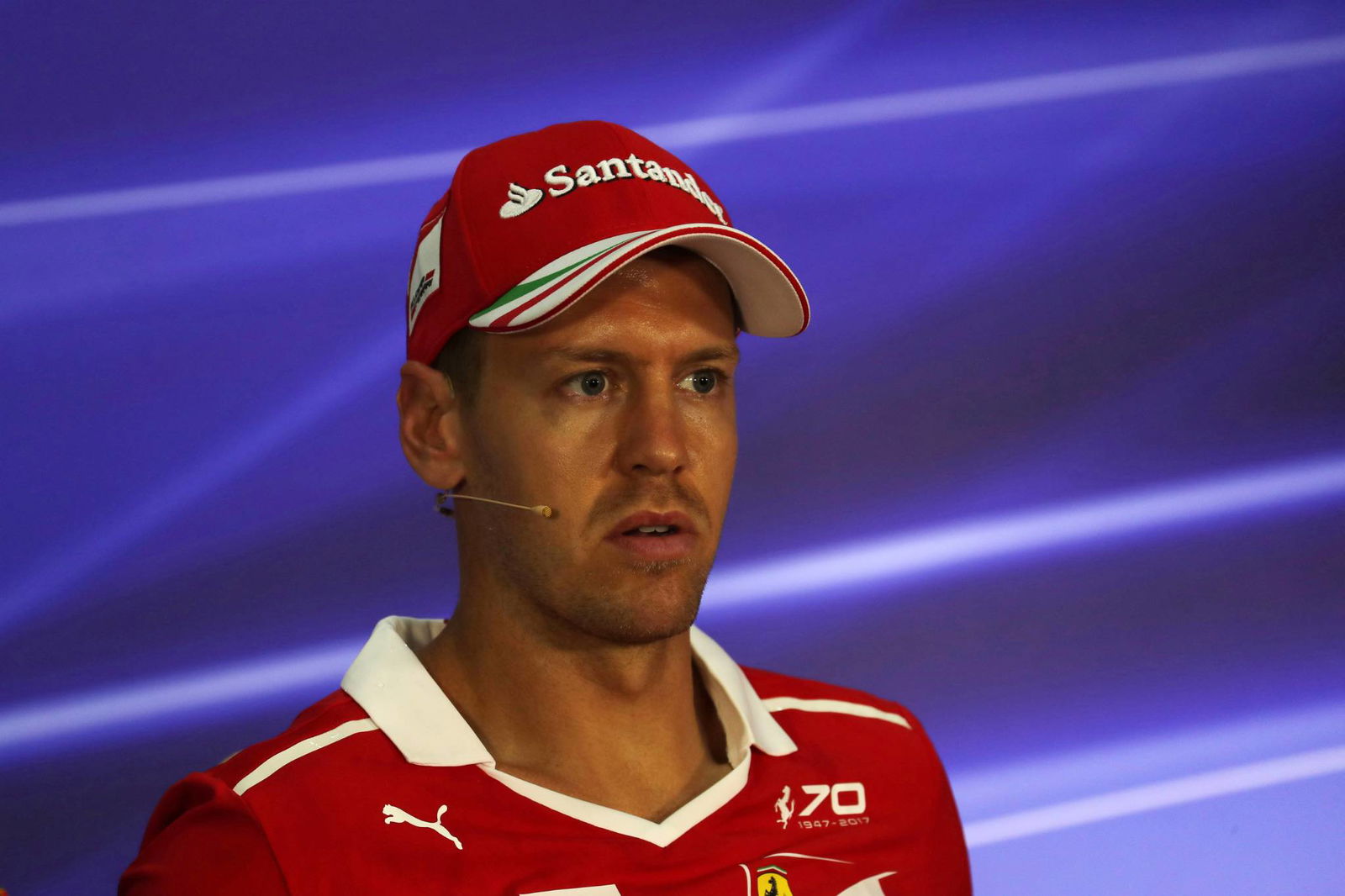Why McLaren’s greatest F1 challenge could still be to come
Jetting off to this weekend’s Malaysian Grand Prix, there wasn’t the same kind of inevitability hanging in the air about the news that would follow as there had been two weeks ago in Singapore.
In the days leading up to what proved to be a dramatic race under the lights of Marina Bay, the paddock knew the news that would break: McLaren and Honda would divorce, linking up with Renault and Toro Rosso respectively. It was a matter of ‘when’, not ‘if’.

Jetting off to this weekend’s Malaysian Grand Prix, there wasn’t the same kind of inevitability hanging in the air about the news that would follow as there had been two weeks ago in Singapore.
In the days leading up to what proved to be a dramatic race under the lights of Marina Bay, the paddock knew the news that would break: McLaren and Honda would divorce, linking up with Renault and Toro Rosso respectively. It was a matter of ‘when’, not ‘if’.
All of the big announcements were formally made in the space of just 13 minutes between FP1 and FP2, with press conferences coming later in the day. Two of Honda’s top executives, Masashi Yamamoto and Katsuhide Moriyama, came in from Japan complete with an interpreter especially to speak with the media.
But the most interesting media briefing came on the Saturday before FP3 took place when McLaren executive director Zak Brown held a roundtable session in the team’s hospitality.
Very much a sign of the post-Ron Dennis era, Brown had arrived last December to oversee a change in fortunes for McLaren and bring about a new approach at Woking.
Brown’s key strength had been McLaren’s long-running weakness: sponsorship. Since losing title sponsor Vodafone at the end of the 2013 season, McLaren had raced with a largely-blank car and no headline brand, with Dennis claiming the concept of a title sponsor was dead - the likes of Mercedes (Petronas), Ferrari (Philip Morris, unofficially of course…), Force India (Sahara), Williams (Martini) and, announced earlier this week for 2018, Red Bull (Aston Martin) would disagree.
But selling a product low on quality is always a challenge, even for someone as experienced and charismatic as Brown. McLaren may be a premium brand, yet given Honda’s struggles and the lack of performance on-track, marketing money is not going to be coming from all corners. For a short-term gain, sponsors are not going to be targeting McLaren.
This quagmire is one McLaren sought to fix by cutting ties with Honda. A more competitive power unit leads to a more competitive performance on-track, thus making the team more attractive to sponsors. As a result, the time spent finalising the split with Honda and tie-up with Renault could be argued as being necessary, even if it did draw Brown’s attention from the task of finding new sponsors - although he is not leaning on that reasoning.
“[It’s] nothing that the team [cannot] catch up on. Decision-making time with sponsorship is typically Q4 or early Q1 and we were anticipating this as well, so we’ve got some great leads,” Brown said.
“It would have been nice to announce before the summer break and you’d always like more time, the more time to prepare a car the better and the more time to find sponsors the better, but it’s nothing that we plan on using as an excuse.”
The decision to break with Honda was not an easy one financially. Yes, the turn-off to sponsors and prize money dent of a low constructors’ championship finish made Renault a more attractive partner, but Honda poured a significant amount of capital into McLaren’s F1 operation. It was a works team that Honda was desperate to see succeed, so much so it made an investment reportedly worth over $100 million per year, all things accounted for. It is not a hole that is easy to fill.
But Brown is confident he is up for the challenge. F1 appears revitalised under Liberty Media following its takeover in January, with the majority of the paddock seemingly excited - albeit yet to get total clarity - about the direction in which the sport is going, aiding the American’s cause.
“I think the sport is in a great place to sell it,” Brown said. “TV ratings are up, live attendances are up. The vibe in the pits is good. It’s great that Mercedes has competition this year, that’s contributed.
“So I think the sport is in a good selling environment now. I think McLaren has a good story.”
But Brown could not sugar-coat things: “It’s not going to be easy. That is the magnitude of the kind of money over that period of time.
“I’ve done it before. We’ve got a great commercial team, we restructured the commercial department, so it won’t be easy, but it’s possible.”
Time may be ticking, and while Brown knows the task that lays ahead, he is not feeling the pressure.
“No team can go on forever, or no owner is going to go on forever without success – ultimately you are going to want payback, whether that’s sporting or fiscal, or both,” Brown said.
“But we are confident that’s going to be good. Right now we are focused on next year and having a positive outlook, not trying to think through what if we don’t have a good year.
“We will deal with that in the middle of next year if that ends up being the case.”
And star drivers don’t exactly come cheap either: namely, Fernando Alonso. The Spaniard’s arrival was helped along by Honda’s return to F1 with McLaren in 2015, meaning there is yet more of a financial hole to fill should Alonso be kept on for next season.
Brown not only confident of keeping Alonso at Woking, but also not having to offer him reduced terms as a result of Honda’s exit: “Not necessarily - the big boys cost big money.”
When it comes to getting sponsors on-board though, McLaren will struggle to see success overnight. The move to Renault is not a guarantee of success in the next three years; it’s simply an improving of the odds by going from the least competitive engine supplier in F1 to the second-least.
“We’re aware of [Renault’s] plans,” Brown said. “We’re confident in their plans. I think these things ebb and flow, right? Ferrari wasn’t where they are today 12 to 24 months ago.
“So I think while it might be seen that Renault’s the third-best engine, they’re still winning races and they’re not far off.
“A lot can happen in the off-season, so I think it would be early to assume they’re going to remain the third-best engine.”
There is also a bigger picture at play for Brown when it comes to planning for the future. Without works backing - something it must be noted Brown reckons the team will still have - McLaren lacks the ability to spend away like Mercedes and Ferrari do, making spending restrictions (i.e. a budget cap) of greater interest than ever to the team.
“I think my biggest concern is over a lack of budget restraint by the two guys leading the championship right now,” Brown said.
“I think that’s what the sport needs to address as opposed to the difference between a works and a customer engine, because I don’t believe there is one, at least in the world of Renault.
“I think those that can afford to race with the budget levels they’re at will do everything they can to maintain that, because that gives them a competitive advantage.
“But it’s a bit like having two extra players on the field on a football pitch. We all need to get into a scenario where we’re playing with somewhat the same size bat.”
Taking bats to a football game is perhaps unwise, yet the introduction of a budget cap is perhaps the only way McLaren can truly return to its heyday, which in turn would be the catalyst to more sponsors getting on-board for the future.
It is a signal of the level which McLaren has reached. Gone are the days when it would take the fight to Ferrari and Renault with its Mercedes-backing - a mere 10 years ago - and it is now fighting the corner of the privateer. But Brown claimed the loss of Honda did not change the team’s stance on a budget cap.
“We’re in favour of a budget gap for sure, [even] if we still had Honda, yeah,” Brown said.
“I think it’s not good for the sport to have such an imbalance of race results, and it would be nice to see five teams win a race in the future.
“I think that would be great, and I ultimately think that would raise the awareness and the excitement of Formula 1, and we would all benefit.”
Is not wanting to take the fight directly to Mercedes and Ferrari a sign of the point McLaren has reached? Perhaps. But it is also a sign of both the reality McLaren faces and the direction that Brown is looking to take the company in.
McLaren cannot be a team that simply functions in F1. He wants to spread its interests in a variety of series, epitomised by the decision to take Fernando Alonso to the Indianapolis 500. Don’t expect the Le Mans rumours to go away anytime soon, either…
Brown’s vision for McLaren is an exciting one, but there is a huge challenge to overcome first - perhaps even greater than resolving the Honda saga that has taken up so much of his time this year.
Shareholders don’t invest for the love of the sport; they invest to make a profit. And as of 2018, there will be nowhere for McLaren or Brown to hide in making the bright vision for the future a reality.

